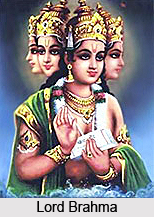 The Upanisads are basically some compositions that show many passages an acquaintance with the technical terms of the orthodox systems and mention many of their prominent doctrines. The Upanisads are mainly interested in presenting a theistic syncretism of the Vedanta, the Samkhya and the Yoga and the early prose Upanisads usually presents more speculation. The later Upanisads describe more of the religious worship and devotion. While talking about the thinkers of the Upanisads, there are a very few names available. The reflections of those thinkers are mainly embodied in the Upanisads and they were quite careless about their personal fame and they were also anxious about the spread of truth.
The Upanisads are basically some compositions that show many passages an acquaintance with the technical terms of the orthodox systems and mention many of their prominent doctrines. The Upanisads are mainly interested in presenting a theistic syncretism of the Vedanta, the Samkhya and the Yoga and the early prose Upanisads usually presents more speculation. The later Upanisads describe more of the religious worship and devotion. While talking about the thinkers of the Upanisads, there are a very few names available. The reflections of those thinkers are mainly embodied in the Upanisads and they were quite careless about their personal fame and they were also anxious about the spread of truth.
As a result of that carelessness, the great thinkers of the Upanisads just feathered their views and thoughts on the honoured deities and the heroes of the Vedic period. The Prajapati and Indra, Narada and Sanatkumara can be figured as the dialecticians of the Upanisads and there are some other names also that can be mentioned while writing the history of the great thinkers of the Upanisad period with their distinctive contributions. The names are as follows: Mahidasa Aitareya, Ravika, Sandilya, Satyakama Jabala, Jaivali, Uddalaka, Svetaketu, Bharadvaja, Gargyayana, Pratardana, Balaki, Ajatasatru, Varuna, Yajnavalkya, Gargi and Maitreyi.



















